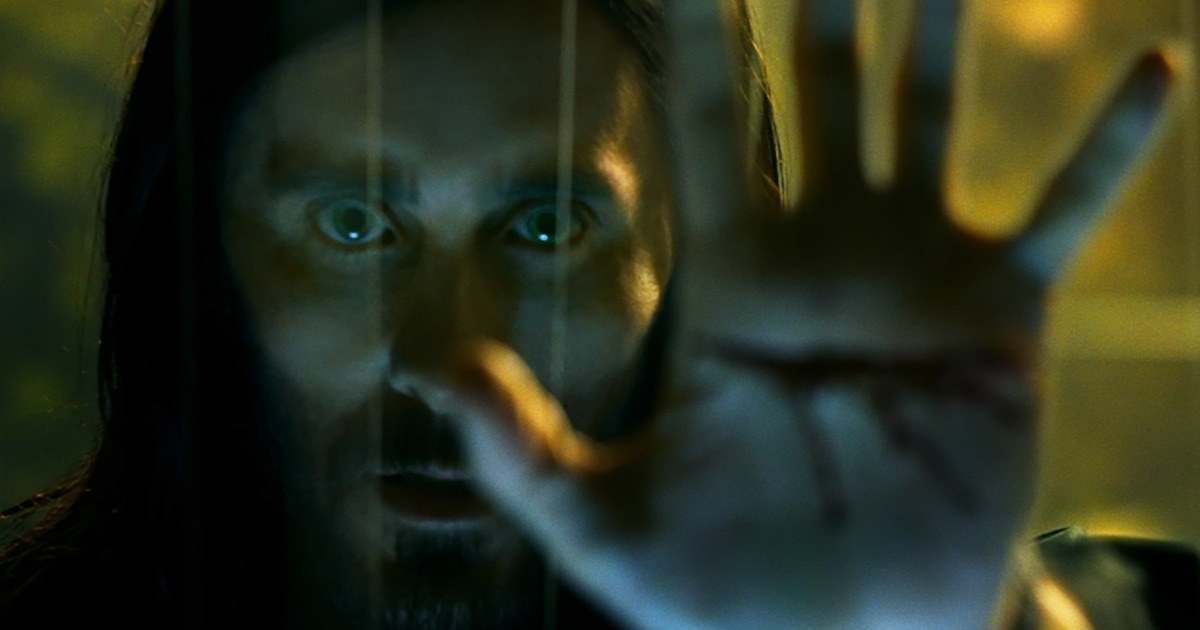
In Bram Stoker’s original novel, the foreign, perverse Dracula is almost universally read to stand in for immigrants, queer people and Jews. When asked to choose sides, you rooted for the virtuous British heroes, not the bloodsucking count.
In the new Marvel superhero film “Morbius,” the vampire is the good guy. What he is not, however, is a champion of the marginalized. Although Dracula has long represented the outsider, Morbius spends the whole film trying to be more normal.
In the new Marvel superhero film “Morbius,” the vampire is the good guy. What he is not, however, is a champion of the marginalized.
Brilliant doctor Michael Morbius (Jared Leto) has a rare condition that leaves him weak, barely able to walk and in constant need of blood transfusions. So he dedicates his life to studying this disorder and defeating it. He first develops artificial blood, which saves millions of lives but doesn’t cure his own illness. Then, because this is a superhero movie, he turns to splicing human and bat DNA. Experiments, as you’d expect, go awry. And before you can say “origin story,” he’s a superpowered bat creature that needs to feed on blood.
In addition to the connection to illness and disability, vampires in “Morbius” are also coded as queer. As a child, Morbius becomes close friends with another similarly afflicted boy, named Milo (Matt Smith). We see Milo early in the film being badly bullied by a group of boys who target him in part because he’s weak and can’t walk. But they also come after him because he’s reading what is essentially a love letter sent by Morbius. The explicit queer bashing gives a pointed, painful edge to Milo’s repeated insistence to Morbius that “we are the few against the many.” It also colors Milo’s obvious jealousy of Morbius’ co-researcher and romantic interest, Dr. Martine Bancroft (Adria Arjona).
Milo helps fund Morbius’ efforts to find a cure for both of them. But while Morbius is horrified by the bloodlust caused by his “cure,” Milo embraces it. “I’m not ashamed of what I am!” he declares. And he tries to convince Morbius he shouldn’t be ashamed, either.
The separatist supervillain is a common trope, from Magneto of the “X-Men” franchise to Killmonger in “Black Panther.” Often the script will acknowledge that the bad guy has a point — mutants are oppressed in “X-Men” stories, Black people are oppressed in “Black Panther” (and in real life). Magneto and Killmonger seek excessive revenge, we’re supposed to think, but their call for justice has some merit.
Milo isn’t accorded that much sympathy. The movie doesn’t acknowledge its LGBTQ themes or how disability is compounded by the callousness of adults, as well as the bullying of children. Milo’s rants are just rants; we’re not supposed to see his complaints as having any merit.
Morbius does occasionally admit that being superstrong is fun, and he has a bond with bats. There are scenes when he’s flying amid all the CGI gunk that the story seems to be reaching — ineffectually, but still — for a lyrical celebration of weird queer goth transcendence. But those moments are fleeting and underdeveloped. Morbius never talks to Milo about the experiences they share as vampires or contemplates the way marginalization has shaped him. He just wants to be normal and hetero and settle down with Martine. You don’t cheer for Morbius the vampire. You root for Morbius to defeat the vampire within — symbolized by Milo.
This lack of sympathy is especially frustrating because in many ways, it’s never been a better time to be a vampire (at least culturally). Anne Rice, Stephenie Meyer and numerous other writers have created romantic, appealing vampires who suggest, to one degree or another, that Bram Stoker was wrong about Dracula and that marginalized people aren’t inherently an evil parasitic threat.
The most obvious example in this context is that other Marvel vampire film, “Blade,” starring Wesley Snipes. The film played with negative stereotypes linking Black people with addiction. But it also celebrated Blade’s outsider status. He’s a hero because he’s Black and because he’s a vampire, not despite those things. Like Milo, he’s not ashamed.
“Morbius,” then, is a superhero story about defeating outsiders and monsters, rather than a story about how those outsiders and monsters can be heroes or about how we should maybe rethink our definitions of heroes and monsters. I guess that’s what Morbius wanted. But Milo deserved better.
Source: | This article originally belongs to Nbcnews.com










